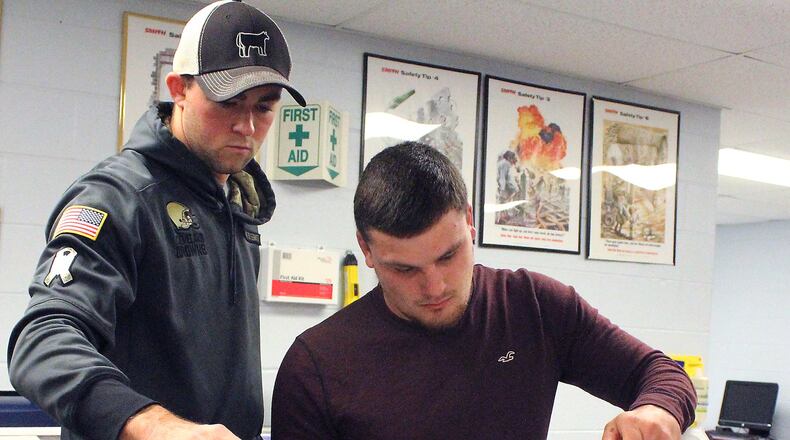The members partner to share resources, faculty expertise, curriculum and tools to help advance agriculture in their regions.
“This partnership is a great way to leverage resources and knowledge across our colleges, and it provides ways to work together to enhance our agriculture programs collectively,” said Tracy Kruse, executive director of the alliance. “The alliance showcases the important role that community colleges play in agriculture and rural economic development.”
Adam Parrillo, dean of business and applied technologies, said the agriculture consortium is important so community colleges can align efforts for greater recognition of their situation in the educational landscape.
“The consortium collaborates on applied research around common issues, shares curriculum through lunch and learn sessions, and creates more robust opportunities that benefit their respective students,” he said. “Each institution brings a different mixture of capabilities and capacities which enhances the opportunities for intellectual growth. Clark State gets to put our institution on display and celebrate our region from an Ag perspective.”
The Midwest community colleges with strong agricultural programs joined together in a national consortium to sign a memorandum of understanding with the U.S. Department of Agriculture’s Natural Resources Conservation Service (USDA-NRCS). This collaboration, which also includes USDA-NRCS and the Sustainable Agriculture Research and Education Program (SARE), was made with the goal of improving health, long-term productivity, resilience and sustainability of the soil.
The two programs are a “critical link” in the education of current generation farmers and ranchers, and the colleges are considered an important asset in educating that next generation. Training the middle skills workforce in agriculture is “imperative” in meeting the world’s growing food needs and sustaining the land and resources for future generations.
“USDA recognizes C2A3 member colleges for their ability to provide a future workforce for its field offices and, more generally, to support leadership and community development in rural areas,” Kruse said.
About the Author

